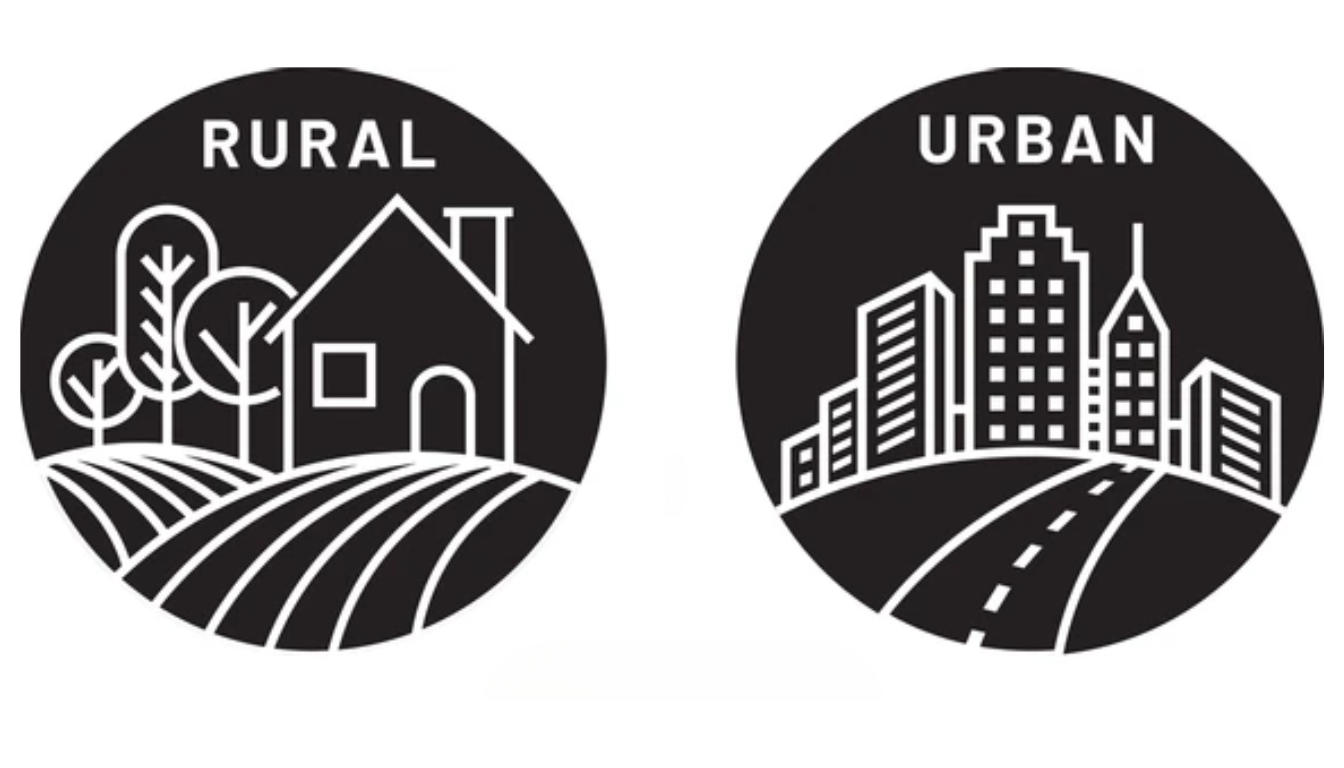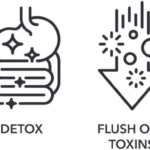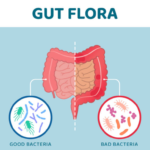
Does Where You Live Affect Gut Health?
Key Takeaways
- The environment you live in significantly impacts the diversity and health of your gut microbiome.
- Rural areas foster a richer diversity of beneficial microbes, which enhances digestion, immunity, and overall health.
- Urban living, with higher pollution levels and consumption of processed food, often leads to reduced microbial diversity, increasing the risk of gut-related diseases.
- Your environment—from diet and air quality to stress and healthcare access—directly influences your gut health.
Gut Microbiome: The Inner Ecosystem You Didn’t Know Was There
Your gut microbiome is a vibrant, complex ecosystem of trillions of microorganisms, including bacteria, fungi, and viruses. These microorganisms aren’t just idle inhabitants of your digestive system; they perform vital tasks such as breaking down food, producing essential vitamins, and maintaining the integrity of your gut lining. But what makes the gut microbiome particularly fascinating is its adaptability to external influences, especially your environment. How you live affects gut health in significant ways.
Living in rural areas exposes you to a more natural environment. Contact with diverse microbes from soil, plants, animals, and unprocessed foods promotes a richer microbiome. This illustrates how our places affect gut health by increasing microbial diversity. In contrast, urban living often includes processed foods, pollution, and limited contact with nature. These factors contribute to reduced microbial diversity, showcasing another way our choices in where we live affect gut health.
This reduction in diversity is crucial because it can make the body less capable of handling everything from digestion to immune responses. Recognizing how we live affects gut health empowers us to make lifestyle changes. Incorporating more natural foods and spending time outdoors are simple ways to influence your gut microbiome positively.
In summary, understanding how our daily habits and environments affect gut health is essential for maintaining overall wellness. By making conscious choices about how we live, we can promote a healthier gut microbiome and improve our general health.
Why Microbial Diversity Matters for Gut Health
The diversity of microbes in your gut is essential for your overall health. A diverse microbiome is like a well-functioning ecosystem—it allows your body to break down a wide variety of foods, fend off harmful pathogens, and keep inflammation at bay. Without this diversity, your body can struggle to perform these essential functions, making you more susceptible to diseases. Understanding how you live affects gut health is crucial in maintaining this delicate balance.
Benefits of a Diverse Microbiome
People living in rural environments typically have richer gut microbiomes, thanks to their constant exposure to diverse microbes. This diversity boosts immunity, improves digestion, and enhances mental well-being. Studies suggest that rural populations are less prone to conditions like allergies, autoimmune diseases, and chronic inflammation because of the richness of their gut bacteria. The way these individuals live affects gut health positively by promoting microbial diversity.
Moreover, daily activities such as consuming fresh, unprocessed foods, working outdoors, and interacting with animals contribute to a more varied microbiome. These lifestyle choices demonstrate how the environments in which we live affect gut health, leading to stronger immune systems and better overall health outcomes.
Risks of Reduced Microbial Diversity
In contrast, urban dwellers often experience a reduction in microbial diversity. Pollution, processed foods, and stress contribute to gut dysbiosis, an imbalance between beneficial and harmful bacteria in the digestive system. This imbalance has been linked to conditions like irritable bowel syndrome (IBS), obesity, and mental health disorders such as anxiety and depression. Here again, the ways we live affect gut health, but in a negative manner.
Limited exposure to nature and reliance on antibiotics and sanitizers in urban settings can further deplete beneficial gut bacteria. Recognizing how our modern ways of life affect gut health is the first step toward making positive changes.
Environmental Factors that Impact Your Gut
Your living environment—whether rural or urban—plays a crucial role in shaping your gut health. The microorganisms in your digestive system are highly responsive to external factors, including the air you breathe, the food you consume, the type of stress you experience, and your access to healthcare and sanitation. Understanding how you live affects gut health is essential for maintaining a balanced microbiome. Here’s how rural and urban settings influence your gut microbiome differently:
Rural Settings: A Natural Boost for Gut Health
Rural environments offer a rich, natural landscape that fosters microbial diversity. People living in these areas often have regular contact with diverse ecosystems through exposure to soil, plants, animals, and unprocessed foods. This variety of natural microbes populates the gut with a wide array of beneficial bacteria, contributing to a healthier, more balanced microbiome. Key factors in rural settings that promote gut health include:
Exposure to soil and plants
- When you interact with natural environments like farms or forests, you’re exposed to beneficial microbes from the soil and plant life. These microbes help boost the diversity of bacteria in your gut, which is linked to improved immune function and reduced inflammation.
Unprocessed, whole foods:
- Rural diets tend to be rich in fresh, locally sourced, unprocessed foods high in fiber. Fiber acts as a prebiotic, feeding beneficial bacteria and promoting microbial diversity in the gut. This is why people in rural areas generally have more resilient digestive systems.
Lesson pollution
- Rural areas typically have lower levels of air pollution, which is beneficial for gut health. In contrast, airborne pollutants, common in urban environments, can travel to the gut and cause damage to the gut lining, leading to imbalances and inflammation. Therefore, the cleaner air in rural areas helps maintain the integrity of the gut microbiome.
Lower stress levels
- Rural areas often have a slower pace of life, with less noise and fewer stress-inducing stimuli. As a result, lower stress levels are linked to better gut health, as chronic stress can disrupt the balance of gut bacteria, leading to conditions like irritable bowel syndrome (IBS) and inflammation.
Access to clean water and sanitation
Clean water and proper sanitation are critical for preventing harmful bacteria from entering the gut. Rural areas with good water quality and sanitation systems offer protection from waterborne diseases that can disrupt gut health.
Urban Settings: Challenges for Gut Health
Urban living, on the other hand, presents unique challenges that can negatively impact the gut microbiome. While cities offer modern conveniences, they also expose residents to factors that reduce microbial diversity and increase the risk of gut-related health issues. Here’s how urban environments typically influence gut health:
Higher pollution levels
- Cities often have higher levels of air pollution due to vehicle emissions, industrial activities, and dense populations. Pollutants like particulate matter (PM) and nitrogen dioxide (NO2) can disrupt the gut’s microbial balance by traveling from the respiratory system into the digestive tract. This pollution-induced imbalance can lead to inflammation and chronic gut conditions like Crohn’s disease or IBS.
Processed diets
- Urban diets tend to rely more on convenience and processed foods, which are often low in fiber and high in sugars and unhealthy fats. This lack of fiber starves beneficial bacteria, reducing microbial diversity and allowing harmful bacteria to thrive. Processed foods also promote inflammation, further worsening gut health.
Stress
- The fast-paced, high-stress environment of cities can take a toll on your gut. Chronic stress releases cortisol, which negatively impacts gut motility and alters the composition of gut bacteria, contributing to dysbiosis (microbial imbalance). Stress is also linked to digestive disorders, such as IBS and leaky gut syndrome, and can worsen pre-existing gut issues.
Limited contact with nature
- Urban living often means less exposure to natural elements like soil and plants. This reduced contact with diverse microbes can limit the variety of beneficial bacteria in your gut. While parks and green spaces exist in cities, they may not offer the same level of microbial diversity as rural environments, making it harder for urban dwellers to maintain a balanced gut microbiome.
Antibiotic overuse
- With more accessible access to healthcare, urban residents are often prescribed antibiotics more frequently. While antibiotics are essential for treating infections, their overuse can wipe out both harmful and beneficial bacteria, leading to imbalances in the gut microbiome.
The Urban vs. Rural Gut Microbiome: A Comparative Look
Rural Gut Health: Rich Microbial Diversity
Living in rural areas often means daily exposure to microbes through soil, plants, animals, and unprocessed foods. Consequently, this exposure encourages the growth of a wide range of beneficial bacteria that promote gut health. As a result, rural populations typically enjoy stronger immunity, better digestion, and reduced risks of chronic diseases like diabetes and colorectal cancer. These advantages come largely from their more diverse microbiomes, illustrating how the ways we live affect gut health in profound ways.
Urban Gut Health: The Challenges of City Living
City life brings its own set of challenges for your gut. Urban areas are often associated with higher levels of pollution, which can disrupt the balance of gut bacteria. Additionally, urban diets tend to include more processed foods that are low in fiber and high in sugars and unhealthy fats. These dietary choices can lead to a less diverse microbiome, making city dwellers more prone to digestive issues, inflammation, and chronic diseases.
Living in a city can also introduce higher levels of stress, which further affects your gut health. Stress hormones can disrupt the balance of gut bacteria, worsening conditions like IBS and contributing to mental health challenges. This combination of poor diet, stress, and pollution can make urban environments particularly challenging for maintaining a healthy gut.
The Role of Diet in Gut Health: Urban vs. Rural Eating Habits
One of the most direct ways that where you live affects gut health is through the foods you have access to. Diet is a critical factor in shaping your gut microbiome, and urban and rural environments provide very different dietary opportunities.
 Rural Diets: Fiber-Rich and Beneficial for the Gut
Rural Diets: Fiber-Rich and Beneficial for the Gut
The Role of Fiber in Gut Health
Fiber is vital for gut health because it supports microbial diversity. Certain gut bacteria break down fiber to produce short-chain fatty acids (SCFAs) like butyrate, which protect the colon and reduce inflammation. People living in rural areas tend to consume more natural fiber, which explains why they often have stronger immune systems and lower risks of chronic diseases.
Urban Diets: Processed Foods and Gut Imbalance
In contrast, urban diets often include more processed foods, refined sugars, and unhealthy fats. These diets are typically lower in fiber, which can starve beneficial bacteria in the gut, leading to gut dysbiosis. Processed foods also contribute to the overgrowth of harmful bacteria, increasing the risk of conditions like obesity, IBS, and inflammation.
The Role of Healthcare Access on Gut Health
Access to healthcare, whether in urban or rural settings, plays a significant role in shaping gut health. In urban areas, healthcare facilities are often more accessible, which can be both beneficial and detrimental. On one hand, easy access to medical care means that illnesses are treated more promptly, preventing infections that might otherwise disrupt gut health. However, this convenience also leads to a higher likelihood of antibiotic overuse. While antibiotics are crucial for treating bacterial infections, their frequent use can harm the gut microbiome by wiping out both harmful and beneficial bacteria. This can result in gut dysbiosis, an imbalance that weakens the digestive system and immunity, increasing susceptibility to conditions like irritable bowel syndrome (IBS) and other chronic diseases.
In rural areas, access to healthcare might be limited, leading to fewer antibiotic prescriptions. While this can preserve the diversity of gut bacteria, it may also result in untreated infections or other health complications that negatively affect gut health over time. The balance between access to healthcare and responsible use of antibiotics is crucial for maintaining a healthy gut, regardless of location.
Pollution and Its Hidden Impact on Gut Health
While we often think of pollution as affecting our lungs or skin, it also has a profound impact on gut health. Air and water pollution, more prevalent in urban areas, can disrupt the balance of your gut bacteria and lead to inflammation.
Airborne Pollutants and Gut Dysbiosis
Pollution in the air, particularly particulate matter (PM) and nitrogen dioxide (NO2), can damage the gut lining and trigger dysbiosis, where harmful bacteria outnumber beneficial ones. These pollutants can enter the bloodstream through inhalation and travel to the gut, causing damage to the protective mucosal barrier. Over time, this can lead to chronic inflammatory conditions like inflammatory bowel disease (IBD) or even colorectal cancer.
The Importance of Clean Water and Sanitation
Clean water and proper sanitation are essential for maintaining gut health, and access to these resources can vary greatly between urban and rural settings. In rural areas, clean water sources and sanitation practices might be more limited, leading to an increased risk of exposure to harmful pathogens. Contaminated water can introduce bacteria and parasites into the digestive system, causing infections that disrupt gut health. In areas with poor sanitation, the spread of diseases that affect the gut, such as cholera or typhoid, can be more prevalent.
On the other hand, urban areas typically have more developed infrastructure for clean water and sanitation. However, aging infrastructure or industrial pollution can lead to contamination of water supplies, introducing heavy metals or chemicals into the system. These contaminants can disrupt the gut microbiome by killing beneficial bacteria or introducing toxins that damage the gut lining. Proper management of water and sanitation in both urban and rural environments is key to maintaining a healthy microbiome.
The Gut-Brain Connection in Urban vs. Rural Settings
The gut-brain axis, the connection between your digestive system and mental health, is influenced by environmental factors. Urban settings are often high-stress environments due to noise pollution, fast-paced lifestyles, and lack of access to green spaces. Chronic stress negatively affects the gut-brain axis by increasing cortisol levels, which disrupts gut motility and microbial balance. Over time, this can lead to conditions such as IBS, anxiety, and depression. The effects of urban stressors on the gut can exacerbate mental health issues, creating a feedback loop between the gut and brain.
Rural environments, with their slower pace and greater access to nature, tend to have a more calming effect on both the brain and the gut. Exposure to nature and lower stress levels help regulate the gut-brain axis by promoting a healthier gut microbiome, which in turn supports better mental well-being. Studies show that spending time in green spaces can reduce cortisol levels, positively influencing the gut’s bacterial composition and improving digestion.
Global Differences: How Culture Affects Gut Health
Cultural practices and diets vary widely across different regions, influencing gut health in distinct ways. In rural areas, particularly in less industrialized countries, traditional diets often include more whole foods, fiber-rich vegetables, and fermented products. For example, in rural Asian regions, diets rich in fermented foods like kimchi, miso, and natto introduce natural probiotics into the gut, promoting microbial diversity and resilience. These traditional practices help maintain a robust gut microbiome, reducing the risk of chronic gut-related diseases.
In contrast, Western urban diets tend to emphasize convenience and processed foods, which are low in fiber and high in refined sugars and unhealthy fats. These foods contribute to inflammation and a reduction in beneficial bacteria, leading to dysbiosis. Urbanized cultures that rely heavily on fast food and pre-packaged meals often experience a higher prevalence of digestive issues such as IBS, obesity, and metabolic syndrome. Understanding these global cultural differences highlights the role of diet in gut health, suggesting that a return to traditional, whole-food-based eating could benefit urban populations.
Environmental Microbiome: The Impact of Built Environments
Built environments in urban areas, including homes, offices, and public transportation systems, host their own unique microbial ecosystems. These environments can influence the diversity of the human gut microbiome. For example, studies on subway systems and public transportation have found that these areas harbor specific bacteria that are passed between commuters, affecting the microbial composition of urban residents. However, these built environments often lack the rich diversity of microbes found in rural natural settings, which can lead to a less varied microbiome.
Indoor air quality in urban environments also plays a role. Many city dwellers spend the majority of their time indoors, exposed to air-conditioned or poorly ventilated spaces. This limited exposure to natural elements can reduce the influx of beneficial microbes into the gut. Conversely, rural dwellers who spend more time outdoors are exposed to a wider range of environmental microbes from soil, plants, and animals, supporting a more diverse gut microbiome. Urban planning that incorporates more green spaces and outdoor living areas could help mitigate the lack of microbial diversity in cities.
Probiotic Supplements: Can They Help Counter Urban Challenges?
As urban living presents various challenges to maintaining gut health—such as processed diets, pollution, and stress—many people turn to probiotic supplements to help restore microbial balance. Probiotics, which contain live beneficial bacteria, are often marketed as a quick fix for gut issues. While these supplements can be beneficial, especially for people suffering from gut dysbiosis or after a course of antibiotics, they should not replace a healthy, fiber-rich diet.
The efficacy of probiotics depends on the strain of bacteria used, the health of the individual’s gut, and other lifestyle factors. Urban dwellers who are exposed to fewer natural microbes may benefit from probiotics, but combining supplementation with diet changes, such as incorporating fermented foods and prebiotics, is a more sustainable approach. Probiotic supplements can be a helpful tool, but they work best when complemented by overall lifestyle improvements like diet, stress management, and regular outdoor exposure.
Tips for Enhancing Gut Health in Cities
Living in an urban environment doesn’t mean you’re doomed to poor gut health. There are practical steps you can take to support your microbiome, even in a city setting:
- Grow your own food: If you have space, consider starting a small herb or vegetable garden. This not only provides you with fresh, fiber-rich produce but also exposes you to beneficial soil microbes.
- Visit farmers’ markets: Fresh, locally sourced produce from farmers’ markets is often richer in nutrients and less processed than supermarket alternatives. It also gives you access to seasonal, fiber-rich foods that can support your gut.
- Bring nature indoors: Houseplants or air-purifying plants can improve the quality of indoor air and introduce some beneficial microbes into your living space.
- Spend time in green spaces: Make time for regular walks or exercise in parks or other natural settings. Even brief exposure to green spaces can boost microbial diversity and reduce stress, both of which benefit your gut health.
The Role of Technology in Managing Gut Health
In urban settings, technology plays a growing role in helping people manage their gut health. While city living often reduces exposure to nature and introduces harmful stressors, technological innovations are offering ways to counter these effects. For instance, personalized microbiome testing allows individuals to get a detailed snapshot of their gut health. These tests can reveal imbalances and suggest specific dietary or lifestyle changes to improve gut diversity.

Health tracking apps are also being used to monitor dietary habits, sleep patterns, and stress levels, all of which influence gut health. While technology can’t replace the benefits of a balanced diet and outdoor exposure, it offers valuable insights and helps individuals make informed decisions about maintaining a healthy gut in urban environments. Incorporating these tools into daily life can help city dwellers overcome some of the challenges of urban living.
How to Support Your Gut Health, No Matter Where You Live
While your environment plays a significant role, there are steps you can take to support your gut health regardless of where you live. Whether you’re in a city or a rural area, promoting microbial diversity is key to maintaining a healthy gut.
Dietary Adjustments for Better Gut Health
One of the simplest ways to improve your gut health is through diet. Whether you live in the city or the countryside, increasing your intake of fiber-rich foods such as fruits, vegetables, whole grains, and legumes can help nourish beneficial gut bacteria. These foods act as prebiotics, feeding the good bacteria in your gut and promoting a more balanced microbiome.
Incorporating fermented foods like yogurt, kimchi, and sauerkraut into your diet can also introduce probiotics, which help balance your gut bacteria. These probiotic-rich foods are beneficial for restoring microbial diversity, particularly if you live in an urban area where pollution and processed foods are more prevalent.
Spend More Time in Nature
Spending time outdoors can have a positive effect on your gut health. Even if you live in a city, making time for regular visits to parks or green spaces can expose you to a broader array of beneficial microbes. This exposure mimics some of the natural microbial diversity found in rural environments. If outdoor time is limited, even keeping houseplants or gardening can provide some microbial benefits.
Manage Stress and Improve Sleep
Stress is a significant factor in gut health, and chronic stress can lead to imbalances in your gut microbiome. Regular practices like meditation, yoga, or deep breathing can help manage stress and support a healthy gut. Exercise is another excellent way to reduce stress while also promoting the growth of beneficial bacteria in your gut.
Sleep is equally important. Poor sleep or irregular sleep patterns can disrupt your gut health, leading to inflammation and reduced microbial diversity. Aim to maintain a regular sleep schedule and create a calming bedtime routine to improve sleep quality, which will benefit your gut health.
Early Life Microbial Exposure: A Foundation for Gut Health
Access to microbes in early life is one of the most important factors influencing lifelong gut health. Children raised in rural areas benefit from early exposure to diverse microbes through interactions with soil, animals, and plants, which helps establish a healthy gut microbiome. In contrast, children in urban environments often miss out on these natural interactions, leading to a less diverse gut microbiome and increasing their risk for conditions like allergies and autoimmune diseases.
Conclusion: Taking Charge of Your Gut Health, Wherever You Are
FAQ
Q: What is the Gut Microbiome?
A: The gut microbiome is a community of microorganisms living in our digestive systems. These include bacteria, fungi, and viruses. They are key in digestion, metabolism, and our immune system. They even affect our mental health through the gut-brain connection.
Q: How does the gut microbiome influence overall health?
A: Our gut’s microorganisms help by breaking down food, making essential nutrients, and fighting harmful pathogens. They work with our immune system to keep it responding correctly. Moreover, they affect our mood and actions through the gut-brain axis.
Q: What factors affect gut health in different environments?
A: Diet, exercise, and healthcare access play big roles in gut health. Urban and rural areas show big differences in these, affecting the gut microbiome and health.
Q: How does urban living impact gut microbiome diversity?
A: In cities, people often see less variety in their gut microbes. This is due to more pollution, less nature, and diets low in fiber. These changes can upset our gut, possibly harming our health.
Q: What are the effects of pollution on gut health?
A: Pollutants in the air and water can hurt our gut microbes. Things like heavy metals and tiny particles can throw off our gut bacteria balance. This might lead to health problems.
Q: How do rural and urban gut microbiomes differ?
A: People in rural areas tend to have more varied gut microbes than city folks. Being around different environmental microbes and eating more fiber helps their immune system and stops diseases.
Q: What are the lifestyle factors in urban areas that affect gut health?
A: City life brings stress, busy schedules, and poor sleep, all of which are bad for gut health. Moreover, these factors can mess with our gut microbes, leading to issues like digestive and metabolic problems. This clearly demonstrates how the ways we live affect gut health. By recognizing that urban lifestyles can negatively impact our gut microbiome, we can take steps to mitigate these effects and improve our overall well-being.
Q: What dietary habits impact gut health differently in urban and rural areas?
A: City diets often contain fat and processed foods, harming gut health. Country diets, with lots of fiber from whole foods, are better for keeping a healthy gut.
Q: How does pollution influence gut microbiomes in urban settings?
A: Bad air and dirty soil in cities are harmful to gut microbes. Studies show that exposure to pollution can disrupt the balance of gut microbes, which negatively affects our health.
Q: What are the implications of stress and irregular sleep on the gut microbiome?
A: High stress and little sleep, common in city life, hurt our gut microbes. Being stressed and tired all the time can change the microbes in our gut, causing health issues.
Q: What kinds of microbial communities exist in urban settings?
A: Cities have many microbes found in subways, parks, and buildings. These city microbes interact with us, possibly changing our health differently.
Q: What are the protective effects of a rural gut microbiome?
A: Country gut microbes are usually more diverse, helping defend against diseases and help with immunity. This variety comes from more contact with different environmental microbes.
Q: How does the early life environment impact children’s gut health in urban vs. rural areas?
A: Being in different places as a child affects one’s gut microbes. Rural areas, with many microbes, might help children have stronger gut health as they grow.
Q: How do green spaces benefit gut health in urban environments?
A: Green spaces in cities boost gut health by exposing us to various microbes. Spending time in nature can increase our gut’s microbial diversity, making our gut healthier.
Source Links
Rural vs. Urban Microbiomes
- Rural Microbiome vs. Urban Microbiome: How Where You Live Affects Your
- Rural and urban microbiota: To be or not to be?
- Effects of urbanization and lifestyle habits on the intestinal microbiota of adolescents in eastern China
- Human Gut Microbiome Across Different Lifestyles: From Hunter-Gatherers to Urban Populations
- Gut Microbiome in Children from Indigenous and Urban Communities in México: Different Subsistence Models, Different Microbiomes
- Analysis of the Gut Microbiome of Rural and Urban Healthy Indians Living in Sea Level and High Altitude Areas – Scientific Reports
- The Effects of Urbanization on the Infant Gut Microbiota and Health Outcomes
- The gut mycobiota of rural and urban individuals is shaped by geography – BMC Microbiology
- Could Rural Living Be Better For Your Gut? How Built Environments Influence Your Health
Environmental Influences on the Microbiome
- Frontiers | Linking the Gut Microbial Ecosystem with the Environment: Does Gut Health Depend on Where We Live?
- Linking the Gut Microbial Ecosystem with the Environment: Does Gut Health Depend on Where We Live?
- Environmental Influences on the Human Microbiome and Implications for Noncommunicable Disease
- Sociobiome – Individual and neighborhood socioeconomic status influence the gut microbiome in a multi-ethnic population in the US – npj Biofilms and Microbiomes
- Characterization of the Gut Microbiota in Urban Thai Individuals Reveals Enterotype-Specific Signature
- Response of the human gut and saliva microbiome to urbanization in Cameroon – Scientific Reports
- Humanization of wildlife gut microbiota in urban environments
- How Urban Microbiomes Contribute to the Ecology of City Life | ASM.org
- Can Our Connection to the Natural World Shape Our Microbiome?
Impact of Pollution and Diet on the Microbiome
- Diet changes due to urbanization in South Africa are linked to microbiome and metabolome signatures of Westernization and colorectal cancer – Nature Communications
- Impact of Environmental Pollutants on Gut Microbiome and Mental Health via the Gut–Brain Axis
- Air pollution effects on the gut microbiota: A link between exposure and inflammatory disease
- Frontiers | Pollutants, microbiota and immune system: frenemies within the gut
- People in cities are losing the gut bacteria to properly digest plants
- How Modern Life Depletes Our Gut Microbes
- 4 ways your environment could impact your gut health | Microba
Gut Health and Lifestyle Factors
- Enhancing Gut Health Through Lifestyle Changes: A Comprehensive Guide — Music City Nutrition & Wellness
- Stress, depression, diet, and the gut microbiota: human–bacteria interactions at the core of psychoneuroimmunology and nutrition
- The Impact of Diet and Lifestyle on Gut Microbiota and Human Health
- Gut microbiome-mediated metabolism effects on immunity in rural and urban African populations – Nature Communications
- Role of the gut microbiota in nutrition and health
General Understanding of the Microbiome
Mating Press
Mating Press I really like reading through a post that can make men and women think. Also, thank you for allowing me to comment!
Belli Health
You’re very welcome.













































2 comments